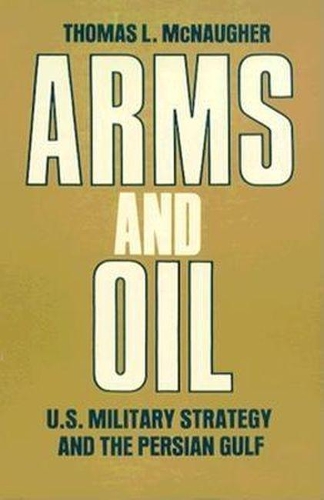
Arms and Oil: U.S. Military Strategy and the Persian Gulf
(Paperback)
Publishing Details
Arms and Oil: U.S. Military Strategy and the Persian Gulf
By (Author) Thomas L. McNaugher
Bloomsbury Publishing PLC
Brookings Institution
1st April 1985
United States
Classifications
Professional and Scholarly
Non Fiction
355.033573
Physical Properties
Paperback
210
Width 152mm, Height 229mm
333g
Description
In 1979, after a decade of enormous increases in the price of oil, U.S. influence in the oil-rich Persian Gulf region declined sharply. Early in the year the Iranian revolution replaced the shah, the principal pro-American leader in the region, with rulers hostile to the United States and to its remaining friends around the Gulf. In December Soviet troops moved into Afghanistan, bringing the Soviets closer to the Gulf and the Indian Ocean. In the United States these events spurred the announcement of the Carter Doctrine and the creation of a new military command to handle Gulf crises. Yet the United States established no new fighting forces, and U.S. friends around the Gulf proved less willing than the shah of Iran to host a U.S. military presence. Thus debate has continued about whether and how the United States can secure important interests in the Gulf region.
In this book Thomas L. McNaugher offers a military strategy that integrates U.S. forces into the security framework that already exists in the region. He suggests that the United States should encourage Jordan, Pakistan, Great Britain, and others to continue their historical involvement in Gulf security, especially in such areas as internal security where U.S. forces are no better equipped than theirs and where U.S. participation may undermine the legitimacy of local rulers. In turn, the United States should focus on protecting the oil-rich states of the Arabian peninsula from external attack and on deterring further Soviet encroachment in the region. These missions demand an increase in the agility, rather than the size, of U.S. forces. But the more important requirement, McNaugher argues, is for skillfully blending U.S. military strategy into a diplomacy that exploits, rather than needlessly upsets, regional security mechanisms.
Author Bio
Thomas L. McNaugher is a research associate in the Foreign Policy Studies program at the Brookings Institution.
